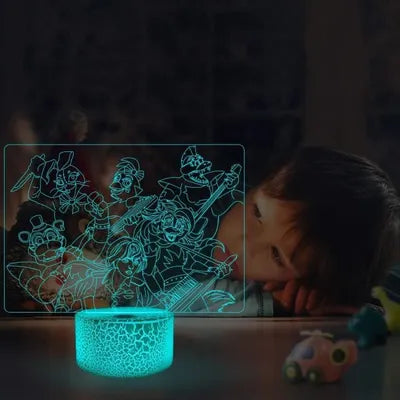It's never too early to start helping your child develop critical thinking.
Discover here 6 ways to help your child develop critical thinking
In fact, the earlier you start, the better. It is important for children to develop critical thinking to succeed in life. There are lots of fun exercises you can do with your child to help develop these skills.
Here are 7 fun exercises you can do anywhere to help your child develop critical thinking.
1. Read books with your child and discuss them
As any parent knows, reading to your child is a great way to promote intellectual development and a love of learning.
But did you know that reading is also an opportunity to develop your child's critical thinking?
By discussing the book as you read it, you can help your child understand different viewpoints and learn to think critically about the events on the page.
Additionally, questioning techniques such as asking your child to predict what will happen next or comparing the book to other stories they have read can also help boost their critical thinking.
The next time you're looking for a way to stimulate your child's mind, consider opening a book together. You may be surprised at how much he learns in the process.
2. Watch movies and listen to music with your child
Many parents worry about the time their children spend staring at screens.
But there are ways to use screen time to encourage critical thinking.
Watching movies and listening to music with your child is a great way to start.
Talk about what you see and hear, and ask your child questions about his thoughts and feelings. This will help him develop a critical eye and ear, and think more deeply about what he is consuming.
It's also important to model critical thinking for your child. When watching a movie or listening to a song, share your own thoughts and feelings, and explain why you like or dislike certain aspects.
This will help your child understand that it's okay to have an opinion and that it's possible to disagree without being disagreeable.
3. Ask your child to give his opinion by observing people
The next time you walk around town with your child, take the time to people watch. This is a great opportunity to teach him to really see the world around him and to start developing his powers of observation.
Pointing to different people and characteristics, ask your child questions such as " why is this person dressed like that " or "why do you think they are in such a rush?"
You can also ask him to make predictions about what might happen next.
For example, if you see someone drop their phone, you can ask your child what they think that person is going to do.
People-watching is a fun way to spend time together while helping your child develop observational and investigative skills.
4. Make a list of things you think are unfair and ask your child to give their opinion
It is important to teach social justice to children from an early age.
By talking about things that seem unfair to you, you can help your child develop critical thinking. This will allow him to see the world around him in a new light and maybe even make a difference in the world one day.
Of course, it is important not to impose your point of view on your child. Listen to their opinions and help them form their own judgments on complex issues.
Also, this exercise will help them empathize with others and understand that the world is not always fair.
Finally, by encouraging your child to think critically about the world around them, you can help them become more compassionate and understanding.
5. Ask your child to identify misleading ads
As any parent knows, children are very impressionable. They see something on television or in a magazine, and they want it.
This is why it is so important for parents to help their children develop critical thinking. One way to do this is to point out to them when an ad is trying to trick them.
For example, an advertisement may show a toy that is larger and more colorful than it actually is. She may also make a statement that isn't really true, like "this toy will make your child smarter."
By showing your child how to identify these tricks, you are helping him become a more informed consumer. And it's a valuable skill that will serve him throughout his life.
6. Encourage your child to participate in debates and express their opinion
It is important to encourage your child to take part in debates and express their opinion in order to develop their critical thinking.
When we debate, we need to express our thoughts clearly and back up our positions with evidence. It forces us to really think about what we believe and why we believe it.
By participating in thoughtful discussions, children learn to analyze and consider different points of view. This helps them form their own opinions and effectively defend their beliefs.
In addition, participating in debates can also build your child's confidence and ability to speak in public.
The next time there is a debate or discussion at school, encourage your child to participate!
7. Take part in community activities with your child
As a parent, one of the best ways to help your child develop critical thinking is to participate in community activities together.
When you volunteer for activities such as local fundraisers or neighborhood cleanups, you are teaching your child the importance of giving back to the community.
And when you participate in such activities together, you also give your child the opportunity to practice critical thinking.
He will learn to solve problems and work in a team, while making a difference in his community.
The next time you're looking for a way to help your child grow, consider participating in community activities together. It's a great way to promote critical thinking and have fun at the same time.
Conclusion
It is important to teach children to think critically about the world around them. This not only helps them to be more compassionate and understanding, but also to prepare for life's challenges.
The exercises we suggest are an excellent starting point. Try one or two and see how your child reacts. We're sure you'll be impressed with your child's rapid progress.









